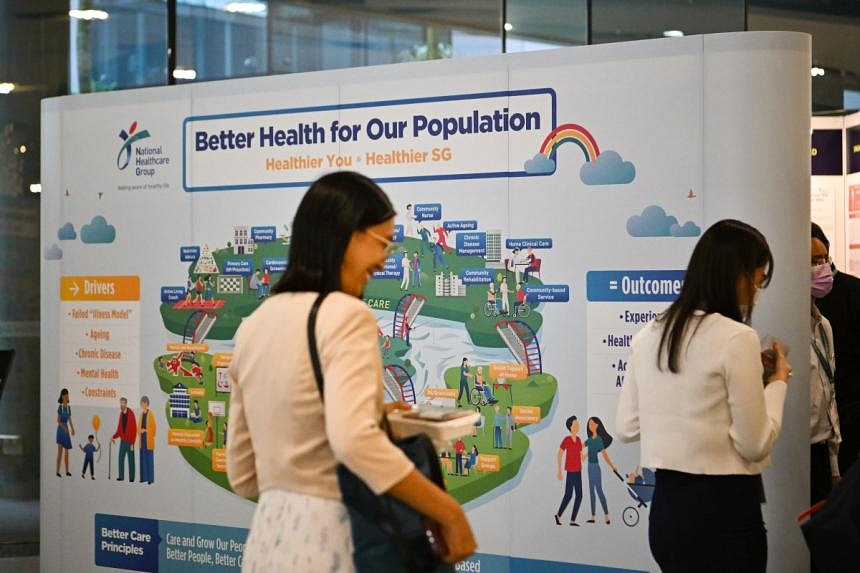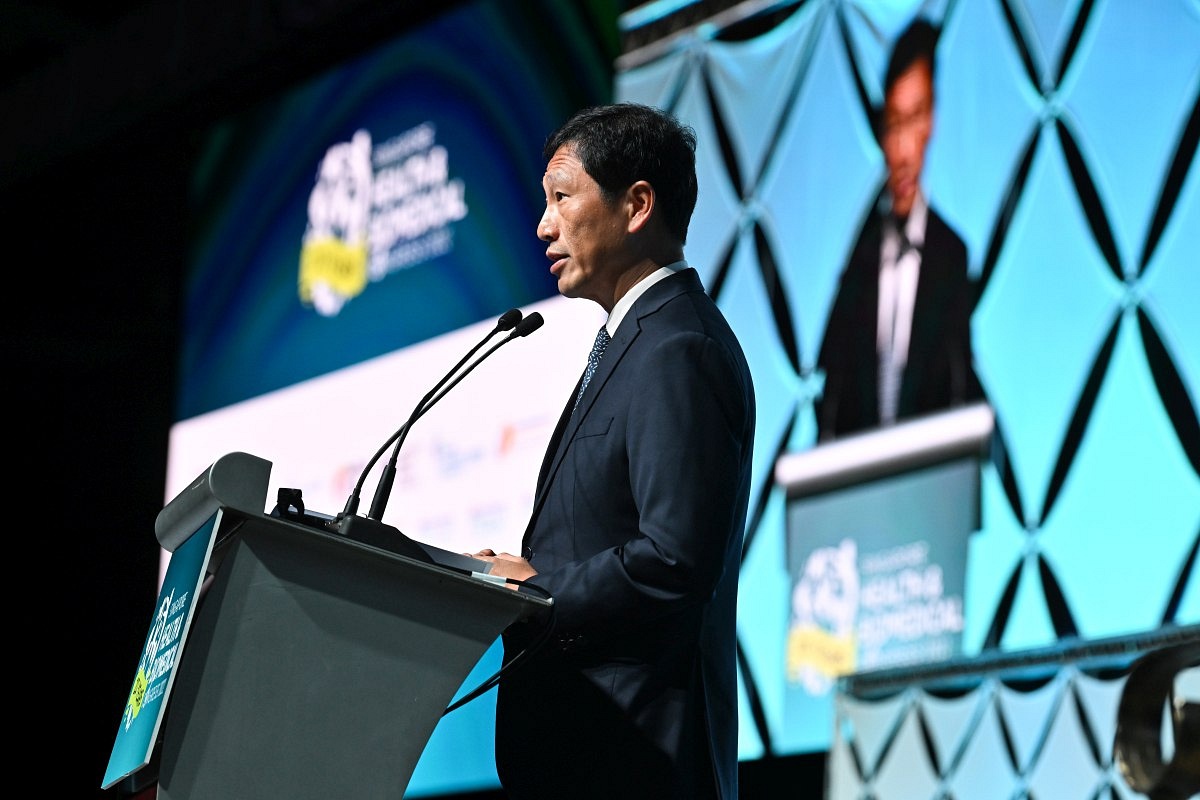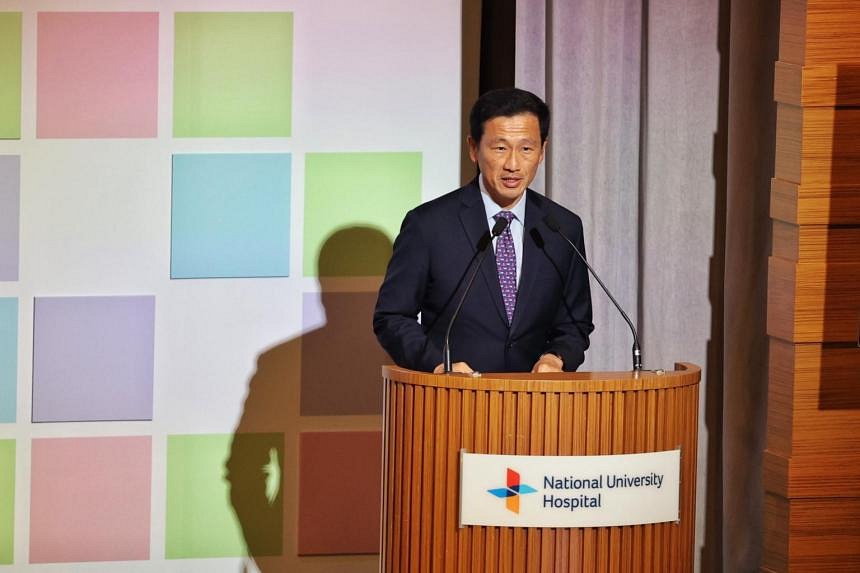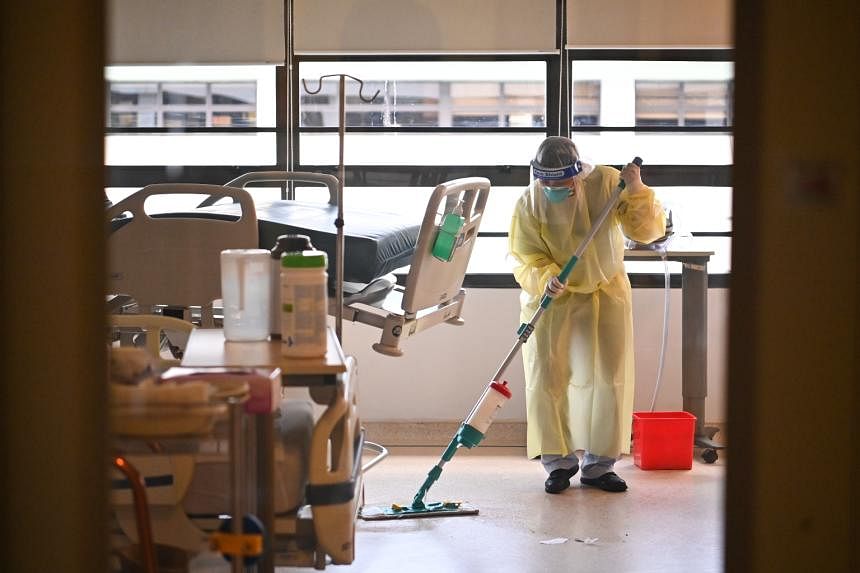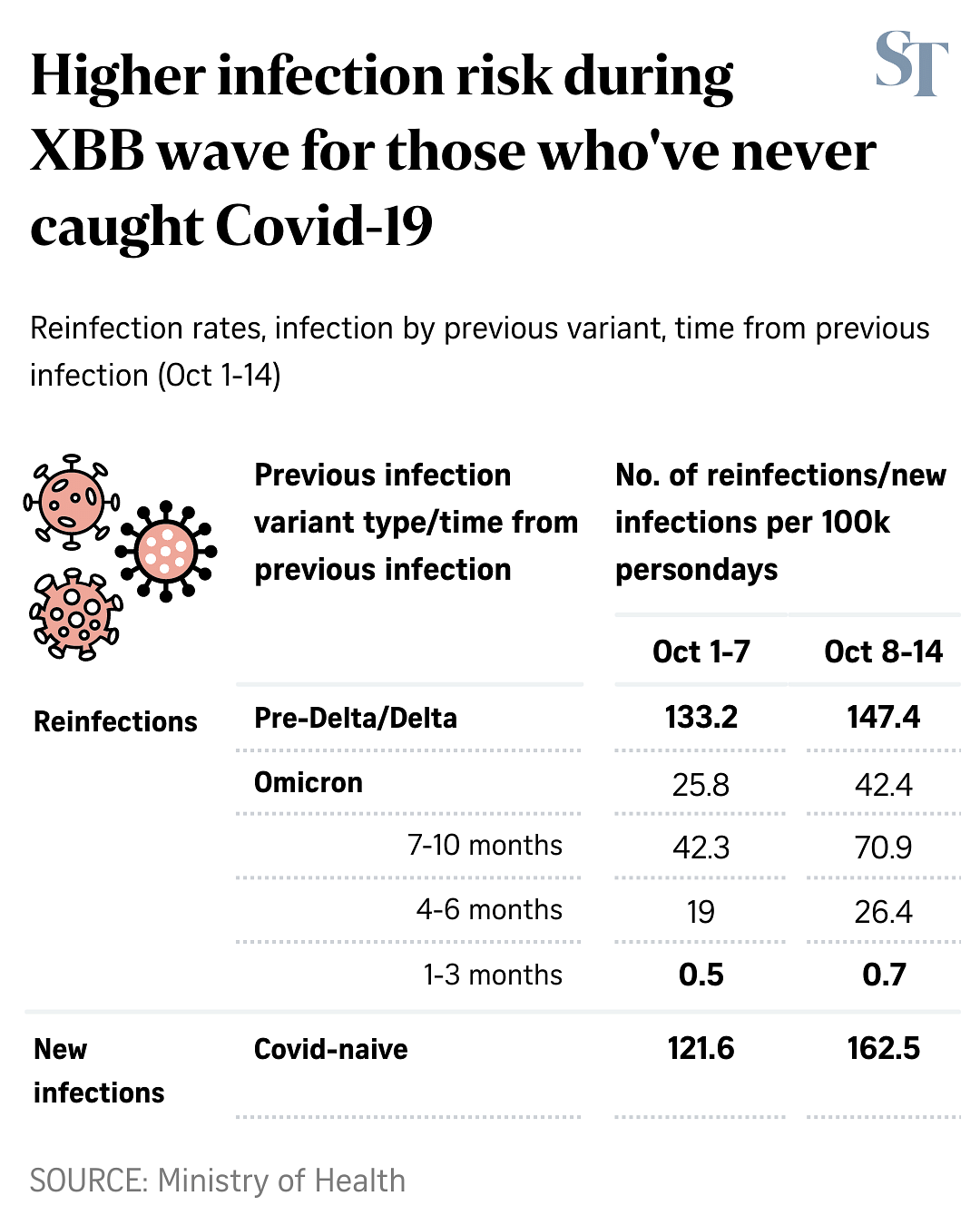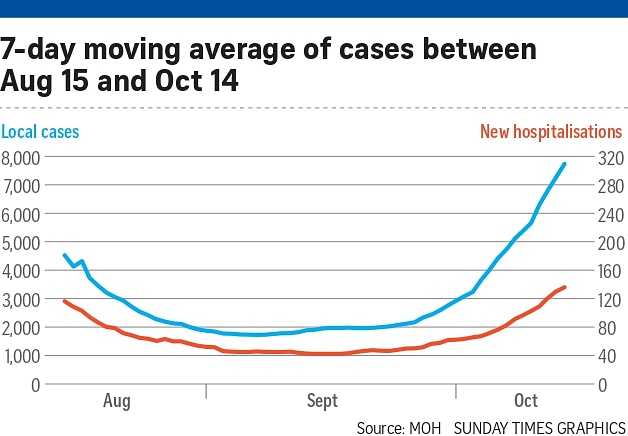- Joined
- Jul 14, 2008
- Messages
- 89,988
- Points
- 113
from straitstimes.com:
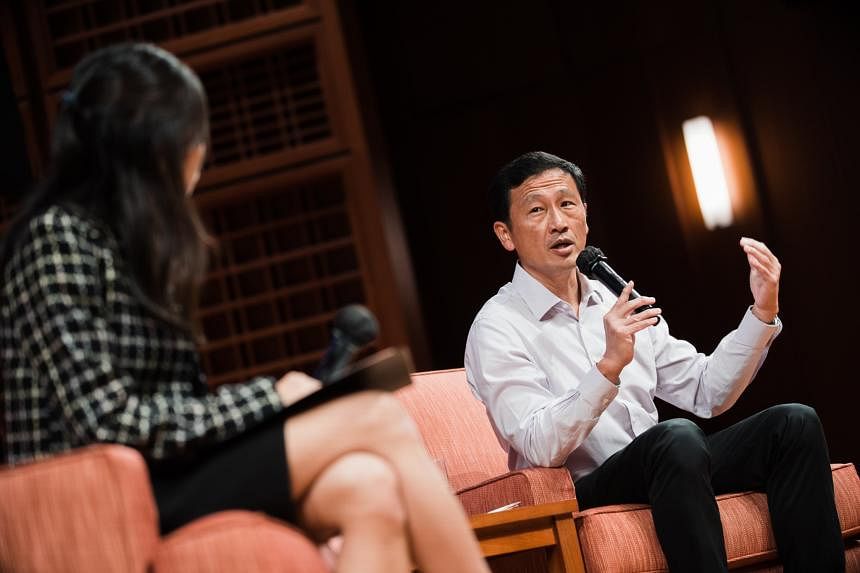
Health Minister Ong Ye Kung (right) speaking at the Yale-NUS President’s Speaker Series, on Oct 10, 2022. PHOTO: YALE-NUS COLLEGE

Ang Qing
PUBLISHED
11 OCT 2022, 12:25 AM SGT
FacebookTwitter
SINGAPORE - Mental health is an important issue that the authorities intend to include under the Healthier SG initiative in the future, but for now this will be covered by other measures, Health Minister Ong Ye Kung said on Monday.
Mr Ong was responding to a student's question at the Yale-NUS College President's Speaker Series, where he related his experience on tackling the Covid-19 pandemic.
The student had wanted to know why mental health was not included in Healthier SG's 12 care protocols for doctors and whether this would change in the future to better integrate mental health into polyclinics and GP clinics.
During last week's debate on Healthier SG in Parliament, several MPs from the ruling People's Action Party and the opposition also raised questions on how mental health would fit into Healthier SG.
The initiative, which emphasises preventive care, will start by tackling chronic illnesses in order to ensure smooth implementation, said Mr Ong.
Published on Sept 21, the White Paper on Healthier SG has been described as one of Singapore's biggest healthcare reforms since 1993.
Said Mr Ong: "We started with chronic illnesses, especially those that accompany the older folks, but this doesn't mean mental health is not important just because it's not in Healthier SG.
"Mental health requires a more sophisticated and comprehensive response first, before we even come up with a protocol. We intend to have a protocol for the GPs."
Mr Ong said Senior Minister of State for Health Janil Puthucheary, who chairs the Interagency Taskforce on Mental Health and Well-being, has been working on a comprehensive set of measures to tackle mental health issues in Singapore for as long as the ministry has been working on the Healthier SG initiative.
Said Mr Ong: "It involves expanding our clinical capacity, especially at Alexandra Hospital, expanding the number of outreach in the community, expanding counsellors and also bringing (mental health) into teaching in schools."
The authorities will address mental health issues from this angle before incorporating mental health into Healthier SG, he told an in-person audience of about 200 people and 130 online.
In July, the mental health task force proposed recommendations to address gaps across three areas to support well-being in the community: improving access to mental health services, strengthening support for youth mental health and improving measures for mental health in the workplace.
Among the recommendations were touchpoints to provide individuals with easy access to mental health support.
Following public consultation on these recommendations, which ended on Aug 7, the task force will develop a national strategy on mental health and well-being to align and guide the work of various agencies.
For Mr Ong, the mental health of seniors is the most worrying, noting that the health impact of loneliness for a senior is the equivalent of smoking 15 cigarettes a day.
He said: "What is very important in tackling that end of mental health issues is setting up a supportive framework and structure to allow our seniors to age in a place with social contact, with friends and with activities that they can choose."
Mental health to be included under Healthier SG in the future: Ong Ye Kung

Health Minister Ong Ye Kung (right) speaking at the Yale-NUS President’s Speaker Series, on Oct 10, 2022. PHOTO: YALE-NUS COLLEGE

Ang Qing
PUBLISHED
11 OCT 2022, 12:25 AM SGT
FacebookTwitter
SINGAPORE - Mental health is an important issue that the authorities intend to include under the Healthier SG initiative in the future, but for now this will be covered by other measures, Health Minister Ong Ye Kung said on Monday.
Mr Ong was responding to a student's question at the Yale-NUS College President's Speaker Series, where he related his experience on tackling the Covid-19 pandemic.
The student had wanted to know why mental health was not included in Healthier SG's 12 care protocols for doctors and whether this would change in the future to better integrate mental health into polyclinics and GP clinics.
During last week's debate on Healthier SG in Parliament, several MPs from the ruling People's Action Party and the opposition also raised questions on how mental health would fit into Healthier SG.
The initiative, which emphasises preventive care, will start by tackling chronic illnesses in order to ensure smooth implementation, said Mr Ong.
Published on Sept 21, the White Paper on Healthier SG has been described as one of Singapore's biggest healthcare reforms since 1993.
Said Mr Ong: "We started with chronic illnesses, especially those that accompany the older folks, but this doesn't mean mental health is not important just because it's not in Healthier SG.
"Mental health requires a more sophisticated and comprehensive response first, before we even come up with a protocol. We intend to have a protocol for the GPs."
Mr Ong said Senior Minister of State for Health Janil Puthucheary, who chairs the Interagency Taskforce on Mental Health and Well-being, has been working on a comprehensive set of measures to tackle mental health issues in Singapore for as long as the ministry has been working on the Healthier SG initiative.
Said Mr Ong: "It involves expanding our clinical capacity, especially at Alexandra Hospital, expanding the number of outreach in the community, expanding counsellors and also bringing (mental health) into teaching in schools."
The authorities will address mental health issues from this angle before incorporating mental health into Healthier SG, he told an in-person audience of about 200 people and 130 online.
In July, the mental health task force proposed recommendations to address gaps across three areas to support well-being in the community: improving access to mental health services, strengthening support for youth mental health and improving measures for mental health in the workplace.
Among the recommendations were touchpoints to provide individuals with easy access to mental health support.
Following public consultation on these recommendations, which ended on Aug 7, the task force will develop a national strategy on mental health and well-being to align and guide the work of various agencies.
For Mr Ong, the mental health of seniors is the most worrying, noting that the health impact of loneliness for a senior is the equivalent of smoking 15 cigarettes a day.
He said: "What is very important in tackling that end of mental health issues is setting up a supportive framework and structure to allow our seniors to age in a place with social contact, with friends and with activities that they can choose."

